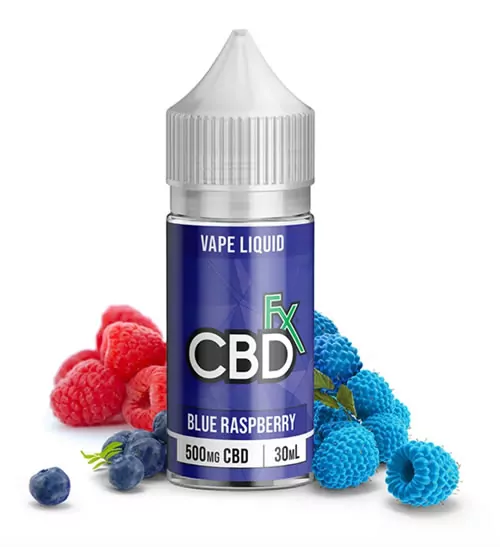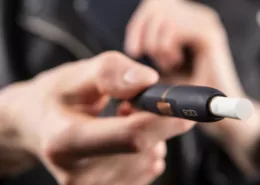HHC Vapes: What Are They & Are They Safe?
You may have heard of it: HHC, or hexahydrocannabinol. Often found in vapes, edibles, and other products, HHC is marketed as a safe and legal way to experience effects similar to the psychoactive “high” from marijuana. But what exactly is HHC? How does it differ from THC and CBD? Are HHC vapes safe, and what is their legal status? This guide will delve into everything you should know about HHC, from its chemical origins and effects to its legal complexities and how to choose a quality product.
What is HHC (Hexahydrocannabinol)?
To understand HHC, we first need to understand cannabinoids. These are natural chemical compounds found in the cannabis plant. The most famous cannabinoids are THC (delta-9-tetrahydrocannabinol), which is responsible for the intoxicating “high” of marijuana, and CBD (cannabidiol), which is non-psychoactive and often used for wellness purposes. There are over 100 different cannabinoids in cannabis, and HHC is one of them.
HHC does occur naturally in cannabis, but only in extremely small, trace amounts. This makes direct extraction from the plant commercially unfeasible. Therefore, the HHC found in consumer products like vapes is almost always created in a laboratory through a chemical process. Typically, it is made from hemp-derived CBD. Through a process called hydrogenation, the chemical structure of a cannabinoid like CBD or THC is altered by adding hydrogen atoms. This process, first discovered in the 1940s by chemist Roger Adams, modifies the molecule’s physical properties, making it more stable and resistant to degradation from heat and UV light. This means HHC products often have a longer shelf life than their THC counterparts.
Because it is derived from federally legal hemp and is not technically a “THC” molecule, HHC has occupied a unique space in the market. It first appeared on the U.S. drug market in late 2021 and was spotted in Europe a year later, where it has been classified as a “new psychoactive substance” (NPS) by the EU Early Warning System.
How Does HHC Differ from THC and CBD?
HHC is very chemically similar to THC, and this similarity is key to its effects. While the pharmacological and behavioral effects of HHC in humans have not been extensively studied, anecdotal reports and some laboratory studies suggest it has a broadly similar effect to THC. The primary difference lies in its molecular structure; the hydrogenation process replaces a double bond in the THC structure with hydrogen atoms.
Here’s a simple breakdown of how HHC compares to its more famous cousins:
- vs. Delta-9 THC: HHC is often described as being slightly less potent than delta-9 THC. User reports generally place the HHC high as being somewhere between the more subdued effects of delta-8 THC and the more intense effects of delta-9 THC. It produces similar feelings of euphoria and altered perception.
- vs. CBD: The difference here is stark. CBD is completely non-psychoactive and does not produce a “high.” It is primarily used for its potential therapeutic benefits, such as reducing anxiety, inflammation, and pain, with evidence suggesting it may have medicinal benefits for a range of conditions. HHC, on the other hand, is psychoactive and is used for its intoxicating effects. There is currently no significant research suggesting HHC has the same medical benefits as CBD.
An interesting quirk of HHC production is that the final product is a mix of two different types of HHC molecules: 9R HHC (the “active” molecule that binds well to the body’s cannabinoid receptors) and 9S HHC (the “inactive” molecule that does not bind as effectively). Manufacturers have not yet found a cost-effective way to separate these two, so the potency of a commercial HHC product can vary depending on the ratio of active to inactive molecules in the batch.
Effects and Potential Benefits of HHC Vapes
As mentioned, there has been very little formal scientific research on the effects of HHC in humans. Most of what we know comes from anecdotal user reports and a handful of preclinical studies. The few studies that do exist have found that HHC showed the effects of the typical cannabinoid on the central nervous system, though with a lower potency than delta-9 THC.
Based on user experiences, the effects of vaping HHC appear to be similar to those of milder strains of cannabis and could include:
- Mild euphoria and mood elevation
- Feelings of relaxation and calm
- Altered sensory perceptions (e.g., of time, sound, or color)
- Increased appetite (“the munchies”)
Regarding potential benefits, some proponents suggest that HHC could provide relief from pain, stress, and may act as an appetite stimulant, similar to THC. A 2007 paper from Japanese researchers described HHC’s impressive pain-blocking capability in mice, and a 2011 study showed that some synthetic analogs of HHC “strongly inhibited breast cancer cell-induced angiogenesis and tumor growth.” However, it is far too early to say whether HHC has significant promise as a therapeutic drug for humans.

CBDfx CBD Vape Juice
- Broad spectrum CBD
- Available in 500mg, 1000mg & 2000mg
- Made with organic hemp & non-GMO
- Coconut-derived MCT oil
- Expertly-crafted flavor for maximum enjoyment
Are HHC Vapes Safe? Understanding the Risks
This is a critical question with an unclear answer. The lack of regulation and long-term research on HHC presents significant safety concerns.
- Potential Side Effects: As the effects of HHC appear to be similar to THC, it is likely that it carries the same potential side effects, including anxiety, paranoia, nausea, dry mouth, red eyes, and insomnia.
- Risks from Intoxication: Like THC, HHC can impair thinking, judgment, and coordination, making activities like driving dangerous.
- Long-Term Mental Health Risks: Regular cannabis use has been linked to long-term mental health issues in some individuals, including depression, anxiety, and psychosis. It is possible that HHC may carry similar risks.
- Lack of Testing and Regulation: This is perhaps the biggest concern. The HHC market is largely unregulated. Products are often untested, and some have been found to contain harmful impurities, non-THC substances, or inaccurate amounts of HHC. Vaping any substance carries its own potential risks, including lung damage and exposure to harmful chemicals from the device or the liquid itself.
Without precise safety data or regulatory oversight, using an HHC vape could be risky for your health. It’s crucial to avoid excessive use and to purchase products only from highly reputable sources that provide comprehensive third-party lab testing results.
Will HHC Show Up in a Drug Test?
This is another area of uncertainty. There is some anecdotal evidence and theoretical discussion suggesting that HHC may not metabolize into 11-hydroxy-THC, which is the primary metabolite that standard drug panels test for to detect THC use. However, this has not been scientifically proven, and there is no guarantee that HHC won’t trigger a positive result on a drug test. Some HHC products may also contain trace amounts of delta-8, delta-9, or delta-10 THC, which would certainly cause a positive test. If your employment depends on passing drug tests, it is strongly advised not to risk your job by using HHC.
Is HHC Legal? A Complex and Evolving Landscape
The legal status of HHC is complex and exists in a gray area. Federally, the 2018 Farm Bill made hemp and all its derivatives legal, as long as the final product contains less than 0.3% delta-9 THC. Since commercial HHC is made from hemp-derived CBD and is not itself delta-9 THC, it is argued to be a legal hemp product under this definition. A May 2022 ruling by the 9th U.S. Circuit Court of Appeals, which confirmed that delta-8 THC was legal under the Farm Bill’s hemp definition, appears to extend this protection to other hemp-derived compounds like HHC, although some attorneys note that other federal courts could reach different conclusions.
However, HHC could still be banned by individual states. Many states have moved to ban or restrict intoxicating hemp-derived cannabinoids like delta-8 THC, and HHC could easily fall under these same state-level prohibitions. The legal landscape is constantly changing. Therefore, it is essential to check your specific state and local laws before purchasing or possessing HHC products.
How to Choose a Quality HHC Vape
If you decide to try HHC vapes, it’s vital to prioritize quality and safety:
- Third-Party Lab Testing: Only buy from brands that provide a comprehensive, up-to-date Certificate of Analysis (CoA) from an accredited third-party lab for their products. This is non-negotiable. The CoA should verify the cannabinoid content (including HHC and ensuring delta-9 THC is below 0.3%) and confirm the absence of contaminants like heavy metals, pesticides, and residual solvents.
- Brand Reputation: Look for established brands with positive customer reviews and a commitment to transparency. Avoid brands with vague product information or no online presence.
- Quality Ingredients: High-quality vapes should contain pure HHC distillate and natural terpenes for flavor, with no unnecessary fillers or additives like Vitamin E acetate.
- Durable Construction: Look for vape cartridges and pens made from quality materials like stainless steel, glass, and ceramic that can withstand heat and use.
Conclusion: A Promising but Unregulated Frontier
HHC vapes represent a fascinating and potent new frontier in the world of hemp-derived cannabinoids. They offer a unique, psychoactive experience that is, for now, federally legal and accessible in many parts of the U.S. However, the excitement around HHC must be tempered with significant caution. The lack of long-term research, the absence of regulatory oversight, and the potential for untested and impure products on the market mean that consumers bear a heavy responsibility for their own safety.
If you choose to explore HHC, do so responsibly. Start with a very low dose, understand the potential risks and side effects, and, most importantly, only purchase from reputable brands that can provide comprehensive third-party lab reports to verify the purity and potency of their products. As the science and legal landscape surrounding HHC continue to evolve, making informed and cautious choices is the best way to navigate this new and intriguing corner of the cannabis world.
- Malaysia to Impose “Pro-Health Tax” on Vape and Tobacco Products - August 2, 2025
- HHC Vapes: What Are They & Are They Safe? - July 31, 2025
- Cannabis and Vape Shop Workers Rank Happiest in Nation - July 31, 2025









